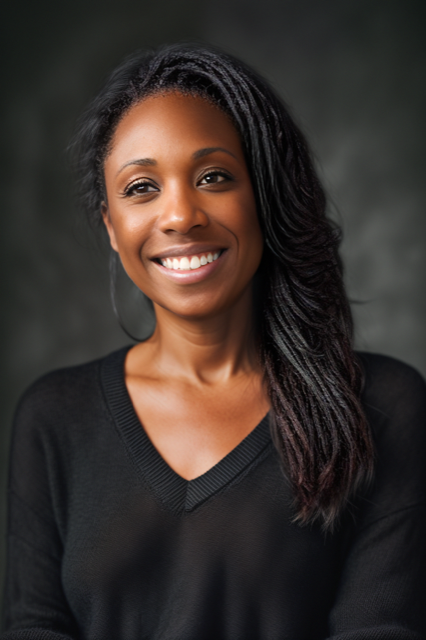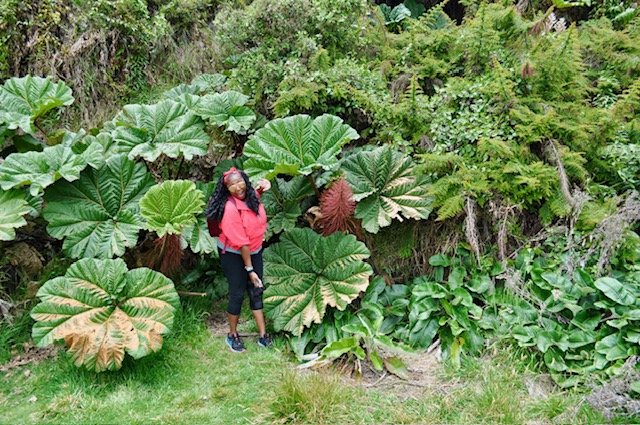How this Globe-Trotting Recruiter Redefined Success and Relaunched Her Career as a Digital Nomad
Real-Life Relaunch Story
Jennifer Johnson, Recruiter, Freelance Writer and Podcast Host:
“Before, I was so busy, and that's part of why I made a lot of moves in my career. I was either chasing a title or I was chasing a salary … The closer I got to it, the less happy I was.
So I needed to redefine what happiness and success look like when they're not tied up in a title and a salary.”
For over a decade, Jennifer (Jenn) Johnson loved working as a student advisor in higher education, a field that she had thought was stable. But after facing salary freezes and having to justify her job at a large public university, she began to question just how sustainable this career path really was. This realization led to her leaving higher ed and relaunching her career, first as an event marketer and then as a recruiter.
Today, Jenn works as a recruiter for Bonsai Leadership Group as well as a freelance writer and podcast host, while traveling the world with her husband. Since 2022, she has lived in Costa Rica, Colombia, Ecuador, Brazil and Argentina, with plans to visit as many countries as she can in South America before heading to Southeast Asia.
I spoke with Jenn about her nontraditional career path, how she has had to redefine success for herself without a job at the center of her identity, and her best advice for fellow career changers.
Q: Tell me about your career journey. What did you want to be when you grew up?
A: Growing up, I knew that I was going to college. It was not an option for me not to go. My grandmother had earned her degree while she was raising four kids on her own. My dad was the first in his family to go to college. But I didn’t really know what to do when I got there. I knew that I liked sports, and I knew that I liked helping people. My dad was a huge New York Jets fan, so I got the idea of becoming a physical therapist. My dad was super excited. He was like, ‘You’re going to be a physical therapist for the Jets.’ And that became the whole narrative when I was going to college.
What nobody had stopped to consider was that, in my first semester, I had calculus, anatomy and physiology, chemistry, biology, and maybe one elective. I wasn’t academically prepared for calculus, and I didn’t particularly enjoy science. I got my first ‘D’ ever. So I switched to sports psychology, which I was more interested in.
In my second year, I pledged a sorority and got integrated into leadership organizations and activities. I was pretty close to my Greek advisor, and at some point it dawned on me that he got paid to help students like me. That led to me getting my master’s degree in counseling with an emphasis on college student services. After graduating, I worked in higher ed for 10 years.
Q: How did you end up on your current path?
I loved higher ed. But at my last job, they froze our salaries and merit increases, and the president made us justify why our jobs were mission-critical to the university. It didn’t feel like a sustainable career for me. It was the first time I had ever questioned my career, especially after spending so much time (and money!) in college to get here.
On the recommendation of a friend, I applied for a job in event marketing and got it. It was an experiential marketing company and IBM was our primary client. It was a completely new industry that I had no idea about, but I realized that a lot of what I had been doing in my roles at the university gave me that experience in event planning.
It was a great job and I loved it, but I was married at the time and made the personal decision to switch to something that wouldn’t require constant travel. I had all this experience now in the tech industry, and I was starting to miss students. So I found a job that combined both, working as a college recruiter focused on diversifying the company’s early talent pipeline. That was how I got into recruiting and HR.
Q: How did you and your husband decide to sell your house and travel the world?
I got divorced and I was ready to think about what else I wanted to do, both personally and professionally. I’d heard about Shonda Rhimes’ book, Year of Yes, which chronicled a challenge to herself to do anything that scared her. So I did that. I said yes to new job opportunities, to concerts, to a girls trip to Tulum, and to online dating—which led me to my forever husband.
I took what I thought was a dream job at a big tech company that ultimately, turned out to be a terrible experience. I was miserable. It was around the time the pandemic hit and I had the time to think again about my passions. I had this idea to interview people who had different career trajectories. I figured that I can’t be the only person whose career is not a straight line. I launched the Wise & Wine Podcast in 2020.
The pandemic really opened up a lot of people’s eyes to the possibility of doing something different. My husband and I talked about what we loved to do. We wanted to travel. We had gone scuba diving and fell in love with it. We got our certification to teach English as foreign language so that we could do that while traveling. And then, within a year of each other, I lost both of my parents.
After we lost my dad, I was like, ‘Well, that’s it. I’m not tethered to the States anymore.’ I told my husband on a Thursday and by the following Tuesday he had already booked an apartment in Costa Rica and met with a real estate agent to sell the house. He was just waiting for me to say the word.
“The pandemic really opened up a lot of people’s eyes to the possibility of doing something different.”
- Jenn Johnson
Q: What’s the most surprising thing you have learned as a digital nomad?
The hardest thing, which I still struggle with, is breaking the pattern of tying in my achievements to what I accomplish at work. Before, I was so busy, and that's part of why I made a lot of moves in my career. I was either chasing a title or I was chasing a salary. I wanted to be called this, or I felt like I needed to make this amount of money. The closer I got to it, the less happy I was. So I needed to redefine what happiness and success look like when they're not tied up in a title and a salary.
In my current role, I love that I'm part of a black woman-owned business that's making a difference in the nonprofit space, but that's not my whole identity. It's what I do. It's something that fulfills some passions of mine. But I'm also these other things. And I think having that freedom to work remotely and travel gives me that freedom to pursue those things.
Q: What advice would you give to others who are considering a career change?
Almost all of my jobs have come from friends saying to me, ‘Hey, I think you'd be great at this’ or, ‘Hey, how about this?’ It was really networking and being in places where people knew what I did. I don’t think it was a strategy. LinkedIn is awesome, but your friends are a great place to network. Even if they don’t work in your industry. Be curious about what they do and let them know what you do, so if an opportunity comes up in their industry, your name is at the top of their list.
Q: As a recruiter, how can a candidate make themselves stand out?
Something that I always tell candidates is that even if I don't understand what you've done, I understand numbers. I understand growth. I understand progression. The goal should be for the recruiter to want to know more about you. On a resume, that data is a great way to do that.
As I'm reading hundreds of resumes, if somebody shows me, ‘When I got to the organization, we had two members, and when I left, we had 175,’ that gives me something to ask you about in the interview.
In the interview process, the hiring organization wants to make sure they're finding somebody who is going to improve their work. Your job as the candidate is to show how you can improve what they do.
As a candidate, make sure that the place you're going is a great fit. Understand for yourself what you need from a work environment and don’t be afraid to ask that in the interview. Even if you’re feeling like, ‘Oooh my rent’s due in two weeks!,’ don’t take a job out of desperation. That never works out great for anybody. It doesn't work out great for the candidate and it doesn't work great for the organization. If it's not a match, be willing to walk away because you're going to walk away eventually anyway. So you can walk away bitter, or you can walk away and go, ‘You know what? This is not the next great fit for me. I'll wait for the one that is.’
For more wisdom from Jenn, follow her on LinkedIn and listen to the Wise & Wine Podcast.


